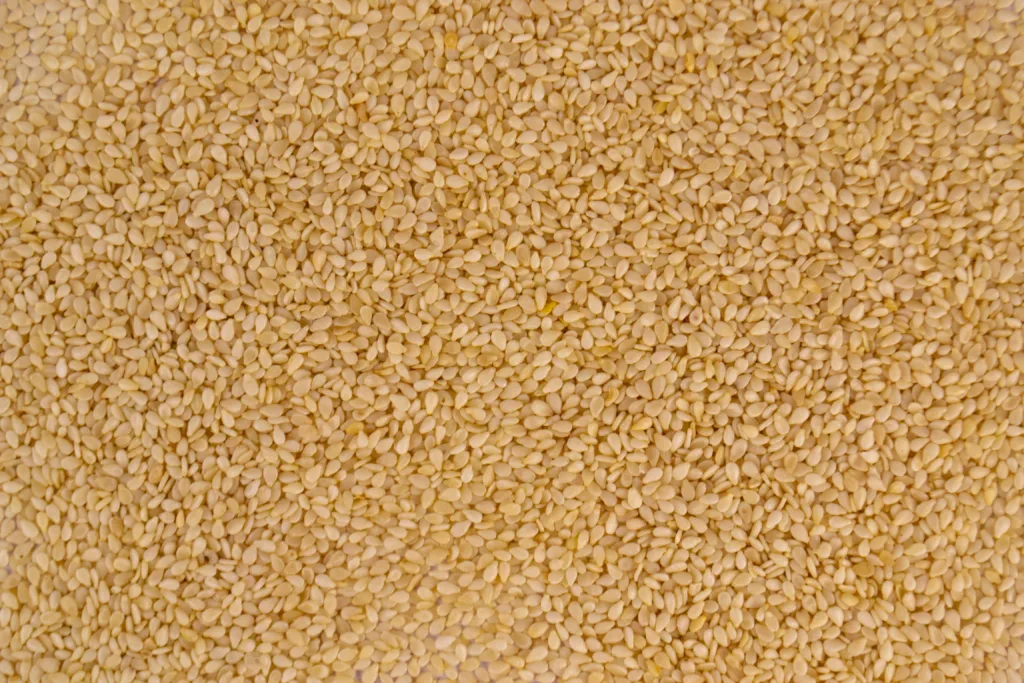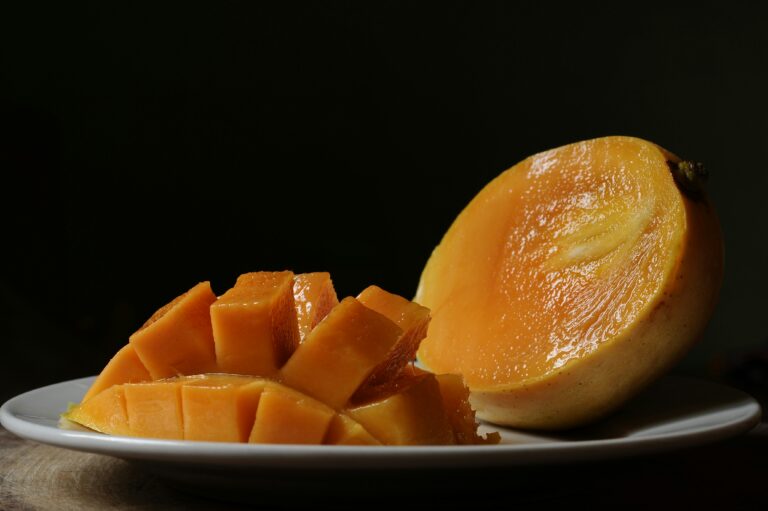The scientific name of the sesame seed is Sesamum Indicum. The sesame plant is likely originated in East Africa or Asia. Sesame seed is an annual plant that is native to India, China, and Turkey. The world’s sesame plant producer is Myanmar. In many countries, it is quite often grown as a minor crop on farms and as a variety of local dishes rather than as a primary source of cooking oil. These sesame seeds have been used as folk medicines for thousands of years.
Color: A variety of different colors of sesame seeds exist, including red white, black, brown, and tan.
Size: sesame seed is wide by 2 mm, thick by 1 mm, and 3-4 mm long. Sesame seeds are small in size.
Shape: sesame seeds are pearly white and creamy. They have a flattened pear shape.
Flavor: sesame seeds have a sweet taste. They are nutty and rich. They have a bold, almond-like stronger flavor.
Nutrients
Sesame seeds are important and very beneficial for the human body as they are fully packed with nutrients. Sesame seeds are perfectly edible. Sesame seed is rich in minerals but their most important source of nutrients are zinc and copper which helps in immunity management.
- Calories 573 – 100 grams
- Carbohydrate 23 g
- Protein 18 g
- Potassium 468 mg
- Sodium 11 mg
- Total Fat 50 mg
| How to grow sesame seed? |
Healthy Benefits of Sesame Seeds
Sesame seeds are incredibly nutritious and easy to enjoy in different recipes. Sesame seed helps to protect against heart diseases and arthritis.
Nutritious source of plant protein
Three tablespoons of sesame seed contain about 5 grams of protein. By roasting sesame seed, processes reduce oxalates and phytates compounds that aid your digestion and absorption of protein. Protein is essential for your body. It helps to build everything from muscles to hormones.
Helps lower blood pressure
Magnesium present in sesame seeds helps to lower blood pressure. In addition, vitamin E, lignans, and other antioxidants help potentially to maintain healthy blood pressure and plaque building in your arteries.
Rich in antioxidants
Sesame seeds may increase the overall activity of anti-oxidants in your blood. The lignans present in sesame seed may function as an antioxidant which helps to fight against oxidative stress. It is a chemical reaction that increases the risk of many chronic diseases and damage your body cells.
Helps to lower cholesterol
Monosaturated and polyunsaturated fats present in sesame seeds may help lower your cholesterol and reduce heart disease risk. Regularly eating sesame seeds may help decrease high cholesterol and triglycerides, both are risk factors for heart diseases.
Aid hormones balance in females
Phytoestrogen is a plant compound present in the sesame seed, which is similar to the estrogen hormone. The sesame seeds are beneficial for those women or females whose estrogen hormone level drops during menopause.
Support bones health
Oxalates and phytates are natural compounds present in sesame seed that helps to reduce the absorption of these minerals. Various minerals present in the sesame seed are calcium, magnesium, manganese, and zinc.
Reduces inflammation
Lower-level inflammation plays an important role in many chronic conditions including obesity and cancer, as well as kidney and heart diseases. Sesame seeds may fight inflammation.
Aids in blood cell formation
Iron, vitamin B6, and Copper these nutrients provide the body’s needs to make red blood cells. These sesame seeds may increase the absorption of minerals.
Soothe arthritic knee pain
Some antioxidants and anti-inflammatory effects are shown to protect your cartilage. Several factors play a role in arthritis and antioxidant damage to the cartilage that cushions joints.
Support thyroid health
Selenium plays a vital role in making thyroid hormones and also aids thyroid health.
Side effects of sesame seed
- Excessive consumption of sesame seeds may lead to a drop in blood pressure to dangerously low levels.
- Fibers present in the sesame seed may form a layer on the appendix causing bloating and severe pain.
- People suffering from gout should avoid sesame seeds as they are rich in copper.
- Eating sesame seeds in large quantities might increase the risk of bowel obstructions in people.
FAQ
What is sesame seed good for?
Sesame seeds are incredibly nutritious and easy to enjoy in different recipes. Sesame seeds are a good source of healthy fats, fiber, protein, antioxidants, minerals, and other beneficial plant compounds. Consuming these seeds may help reduce cholesterol, fight arthritis pain, support bone health, and help regulate blood sugar.
When should I eat sesame seeds?
Sesame seeds are significant and advantageous for human health because they are nutrient-rich. Although the ideal time to eat sesame seeds may vary depending on personal choice, many choose to have them for breakfast or as a nutritious midday snack.






